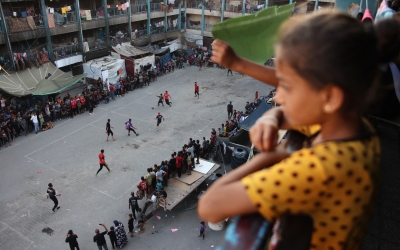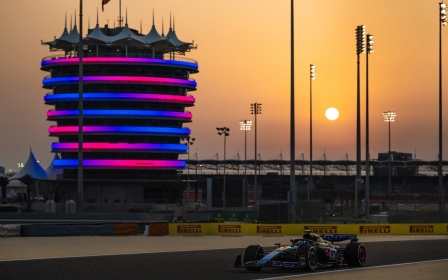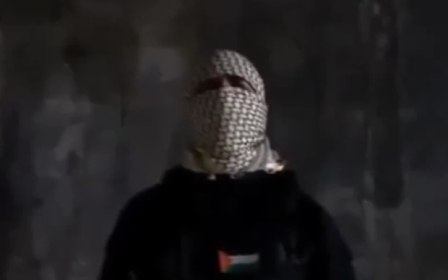Paris Olympics 2024: Ceremony organisers deny mocking Jesus amid Christian and Muslim anger
The opening ceremony of the Olympic games in France provoked a backlash from Christian and Muslim religious groups after accusations that one scene was a mockery of Leonardo Da Vinci's painting The Last Supper, which depicts one of the final episodes of Jesus's life before his crucifixion.
On Sunday, the organising committee of the games said that the scene depicted during the opening ceremony on Friday evening had nothing to do with the figure of Jesus, who is revered in Christianity and Islam.
The offending scene - which was performed by colourfully dressed people, including drag queens - was a depiction of Greek gods enjoying a party and not of Jesus Christ and his followers, stated the organisers.
"There was never any intention to disrespect any religious group whatsoever," said communications director Anne Descamps.
Nonetheless, the anger over the scene has spread as far as the Middle East, with Christian and Muslim groups expressing outrage.
New MEE newsletter: Jerusalem Dispatch
Sign up to get the latest insights and analysis on Israel-Palestine, alongside Turkey Unpacked and other MEE newsletters
The leader of Egypt's largest Christian denomination, the Coptic church, condemned the opening ceremony as a "blasphemy".
Pope Tawadros II said in a statement that the ceremony seemed to "contradict the Olympic Charter and its core values".
“This blasphemy demands a clear and sincere apology from the organisers of the Paris 2024 Olympics to all Christians who were deeply offended by this regrettable scene," he said.
"It marred what should have been a global celebration of sport bringing joy and happiness to all participants and spectators."
Egypt's Al-Azhar, arguably the world's top Sunni Muslim authority, also condemned the ceremony as "insulting" in a statement.
"Insulting Jesus Christ or any of his brother prophets is extremism and reckless barbarism," said the institution in a statement.
It continued: "Al-Azhar warns the world of the danger of exploiting global events to normalize insults to religion, and to promote destructive and shameful societal diseases such as homosexuality and sexual transformation, and calls for the need to unite to confront this deviant, low-level trend, which aims to exclude religion and deify degrading sexual desires that spread health and moral diseases, and impose a way of life."
Broadcasts of the ceremony on TV were cut off or censored in Algeria, Morocco and Turkey.
An MP for Turkey's ruling Justice and Development Party (AKP) denounced the ceremony as, “LGBT, pedophile and satanic propaganda”.
Other religious groups condemning the event included the Middle East Council of Churches, the Assembly of Catholic Ordinaries of the Holy Land, and the Muslim Council of Elders.
Commemoration of French massacre
Further controversy was stirred up during the opening of the Olympics when the Algerian team threw flowers in the Seine to commemorate a massacre of independence activists that took place on 17 October 1961.
On that day, some 30,000 Algerians who came to demonstrate peacefully in Paris in support of Algerian independence were brutally repressed by police.
Although the figures are disputed, historians estimate that as many as 200 people died in the incident, many beaten and thrown into the river.
On Friday the Algerian athletes brought red roses on their boat as they paraded for the event and threw them in the river, with some members of the delegation chanting “Long live Algeria!” in Arabic after throwing the flowers.
After years of being covered up by the French state, in 2021 President Emmanuel Macron officially recognised the massacre, saying the “crimes committed that night … are unforgivable for the republic”.
Editor's note: The Last Supper is a painting by Leonardo Da Vinci and not Michaelangelo as stated in an earlier version of this article
Middle East Eye delivers independent and unrivalled coverage and analysis of the Middle East, North Africa and beyond. To learn more about republishing this content and the associated fees, please fill out this form. More about MEE can be found here.





